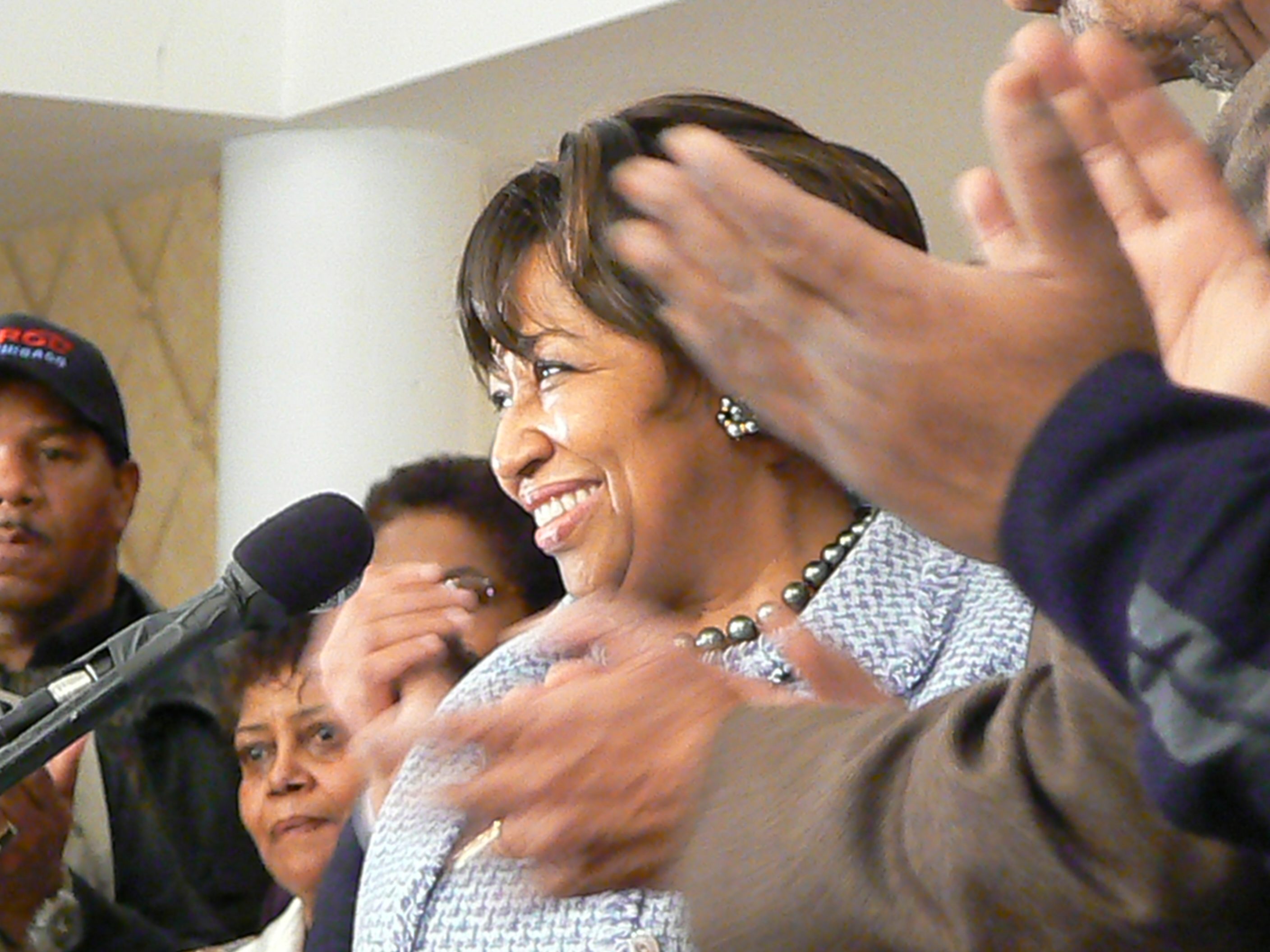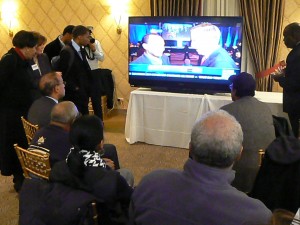by La Risa Lynch
“We have not won this election,” Carol Moseley Braun told a crowd of supporters gathered at the Parkway Ballroom Tuesday night.
“It’s a painful thing to lose an election,” she added. “We gave it our best. We worked very hard. We went all over the city.”
But in the end it wasn’t enough to secure a run-off. With all precincts reporting, Braun only managed 8.96 percent of the votes behind former City Clerk Miguel del Valle’s 9.8 percent.
Rahm Emanuel managed to pull off an upset. He won the city’s top job with 55.24 percent of the votes without facing a run-off as many have predicted. Gery Chico had 23.97 percent, community activist Patricia Van Pelt-Watkins, 1.65 and Bill “Doc” Walls, 0.90 percent.
Braun wished Rahm well “in his taking up the reins of government.” But she stressed the city must work for everyone not just those with a Wall Street agenda.
“We will continue to make the case that the homeless, the hungry and the unemployed deserve our attention and our support as La Salle Street,” she said. “If this city doesn’t work for them [the underprivilegde], it doesn’t works for no one.”
Braun thanked her supporters, including Congressmen Bobby Rush and Danny Davis, who she said became like “blood brothers,” to her.
And while thanking the voters, she hinted at the low turn out. Election officials had predicted a turn out as high as 50 percent but got 41 percent. Of the 1.4 million voters, little less than half came out on election day.
“Those of you who came out and voted, … thank you so much for taking your citizenship seriously,” she said.
Braun’s game plan failed to gain traction. She started the election with 93,000 petition signatures. Campaign officials hoped those pockets of support would come through. But Braun failed to win any predominately Black wards.
Campaign spokesperson Renee Ferguson said big money dumped into Braun’s opponents’ campaign war chest worked against her.
“We know we were up against a huge amount of money,” Ferguson said. “We also know that our community’s business people are hurting, and they didn’t have the money to support us.”
Ariel Capital Management CEO John Rogers Jr., agreed. He backed her campaign early on.
“It hurt her significantly that we were not able to raise as much as we had hoped. The money just wasn’t there,” he said. “It was extraordinarily disheartening.”
He points to the dire economic condition effecting Black businesses for the campaign’s financial woes. The election of the city’s first Black mayor Harold Washington was fueled by Black businesses, like Ed Gardner’s Soft Sheen.
“We don’t have the same kind of progressive successful business leaders that are free to support progressive candidates,” he said.
When asked about the low voter turn out, Rush said he was not a mind reader as to why voters stayed home. “The voters spoke, either by their actions or lack of actions.”
Davis said he was surprised by Braun’s near nine percent showing. He says that resulted from a lack of a political organizing machine within the Black community. The concept of having a consensus candidate was to jump start that process, he noted.
“I never would have thought that nine percent would have been the number,” Davis said.
He did admit missteps hurt Braun’s chances. She was heavily criticized for an off the cuff remark calling Watkins a crack addict. He said Braun tried her best to recovery from it by apologizing, but the comment had a life of it own.
“That certainly did not help,” he added.
Also not helping was the Obama factor. Davis explained, many — especially in the Black community — viewed Pres. Obama’s characterization of Emanuel’s time in the White House as a thinly-veiled endorsement.
“There were people who took all of that to mean that the president was endorsing Emanuel,” he said.
Regardless, Davis said he plans to work with mayor-elect Emanuel “to make sure that federal policy reflects the needs, the hopes, and aspirations of the people of Chicago. And we’ll move on.”


Be the first to comment on "Braun’s attempt to be city’s 2nd female mayor falls short"